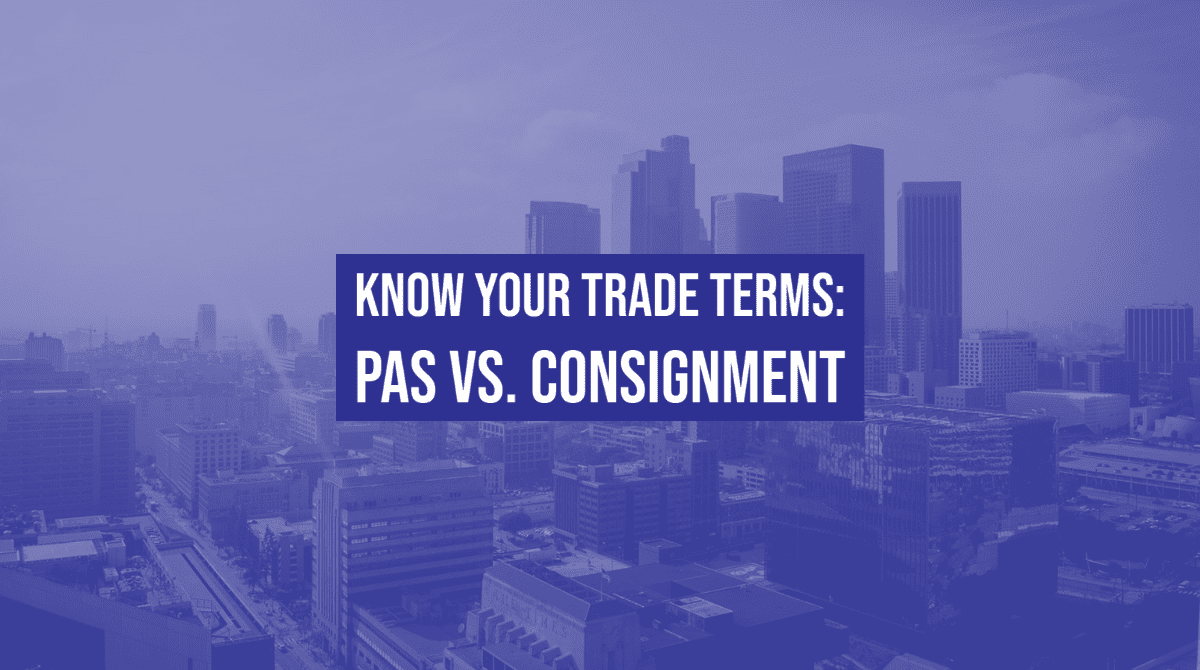Trade terms save us from having to work through boilerplate legalese with each new transaction. They are essentially shorthand versions of various rights and responsibilities buyers and sellers incorporate into sales agreements.
PAS vs. Consignment
The terms price-after-sale (PAS) and consignment (“handling for the account of another”) are commonly used and commonly confused.
On the surface, these terms have many similarities: (i) no fixed price or return; (ii) both tend to be used when produce is distressed or has been rejected; (iii) a detailed account of sales is usually provided to support the proffered returns; and (iv) certain expenses may be deducted from the gross proceeds realized from the sale of the produce.
Below the surface, however, these two terms are very different. When product is provided on a PAS basis, title passes just as in any other sale (PAS sales may be FOB or delivered).


What defines a PAS transaction is that the parties do not agree to a price at the time of sale, but instead anticipate agreeing on a price after the product is sold by the buyer. In the event no price can be agreed upon, a “reasonable price” may be imputed if the dispute must be resolved formally.
On the other hand, when produce is received on a consignment basis, the consignor (e.g., a shipper or distributor) retains title to the produce until the consignee (e.g., wholesaler) sells the product to a third party or third parties on the consignor’s behalf.
Practical differences between PAS and consignment follow logically from this fundamental difference. For instance, a consignee is required by PACA regulations to provide the consignor with a detailed account of sales showing when the product was sold and for what price.
Naturally, if you’re selling someone else’s product for them, you would expect to be required to account for these sales. No such requirement applies to PAS buyers.
That said, when the buyer and seller in a PAS transaction cannot agree on a price after the product is sold, it is typically in the PAS buyer’s best interest to provide a detailed accounting in support of its proffered return.
Another difference is that a consignee may recover losses from the consignor, should the consignee’s commission and expenses exceed the gross proceeds realized from a prompt and proper sale of the consigned product.
Per PACA precedent, however, PAS buyers may not recover such losses from the PAS seller. The PAS buyer, in this respect, takes a greater risk than the consignee.
With this increased risk, however, comes some reward as PACA precedent, by default, allows PAS buyers to deduct 20 percent of gross proceeds for “profit and handling,” where consignees are typically only permitted a 15 percent “commission.”
Buyers and sellers are not restricted to established trade terms and, with few exceptions (e.g., something illegal), can agree to whatever they want.
But the established trade terms, if correctly understood, can usually help the parties reach a suitable agreement without getting too far off the beaten path.
This is an excerpt from the Trading Assistance feature from the May/June 2021 issue of Produce Blueprints Magazine. Click here to read the whole issue.



